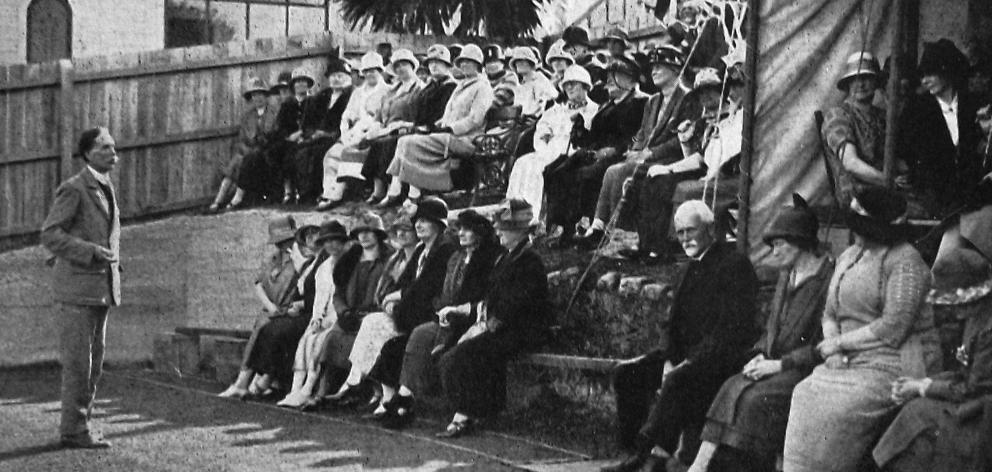
Mrs T. Fleming, president of the club, welcomed the visitors and asked Mr T.K. Sidey to make the official opening.

He declared the lawns officially opened and wished the members many happy hours upon them. He then called on Mr Fleming to roll up the first ball. Mr Fleming then took a mallet and played the first ball, and the company joined in heartily singing ‘‘For He’s a Jolly Good Fellow.’’
Schools to help on election day
Some rather decided opinions were passed at yesterday’s meeting of the Otago Education Board in connection with a communication from the Education Department as to the use of school buildings for electoral purposes. The department stated that, for the efficient carrying out of the general election, the employment of school teachers and the use of school buildings as polling places in country districts appeared to be essential. The Chairman (Mr J. Wallace) said an objection raised was that
teachers were Government servants and were being paid extra for doing Government work. That was one of the great objections to teachers acting in the capacity suggested. He thought that they should allow teachers to act as poll clerks in every case where a school was closed, and when a school was not closed the head master should have power to assist.
Mr Sanderson moved that where schools were closed the teachers might be used for polling purposes, and this was agreed to without a division. He then moved that where teachers in town made application to act as poll clerks, the application be granted, provided suitable arrangements could be made by the head master for carrying on such teachers work. The motion was carried by four votes to three.
How much is this going to cost?
In seconding the adoption of the Finance Committee’s report at the City Council meeting last night, Cr Shacklock said he hoped the time would not be long when the council would be informed what the cost of the Exhibition was going to be to the city. He knew it was quite impossible to obtain this information at the present time, but he was quite satisfied that when it was available it would be an eye-opener to the majority of the ratepayers in the town.
Winner takes all
Last night Dr Fisher, professor of economics at Otago University, delivered an interesting address on ‘‘Reparations’’. Dr Fisher referred to the outrageous idea that a whole nation should for the lifetime of its people be forced to direct all its resources to the production of tribute for a foreign nation. It was, he said, only possible for the Germans to discharge their debts in the form of goods, and the incongruity of a policy which demanded payment, and yet desired to refuse acceptance of German goods was difficult to understand. — ODT, 22.10.1925














